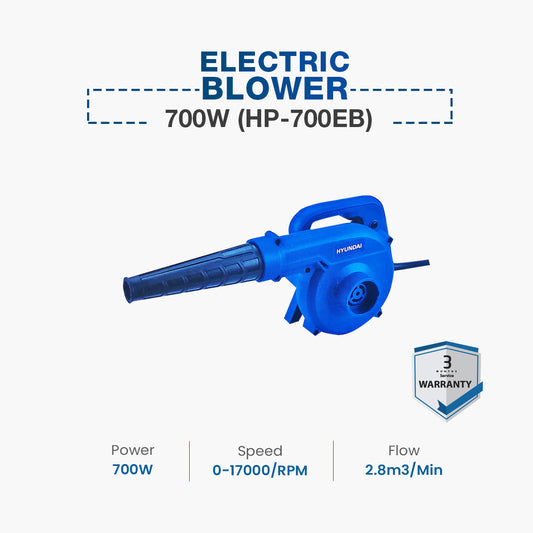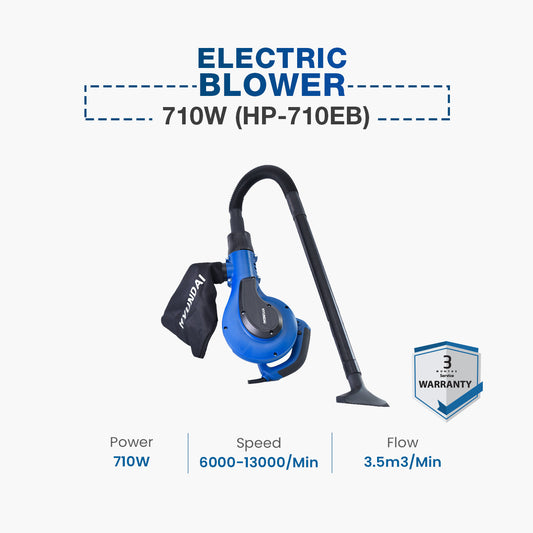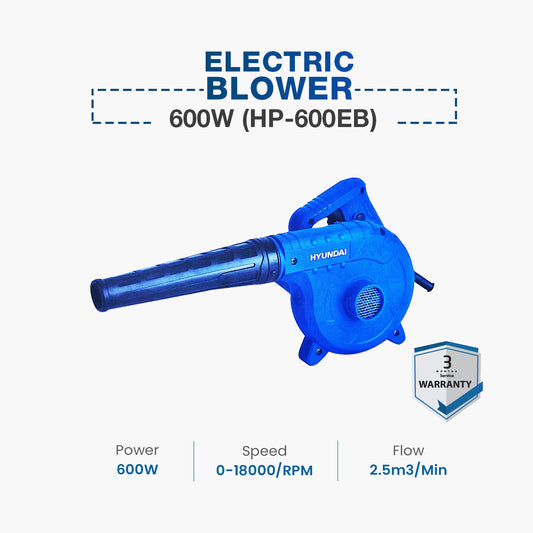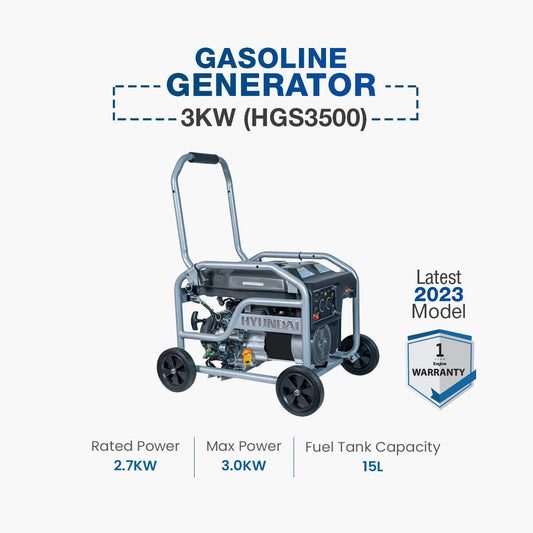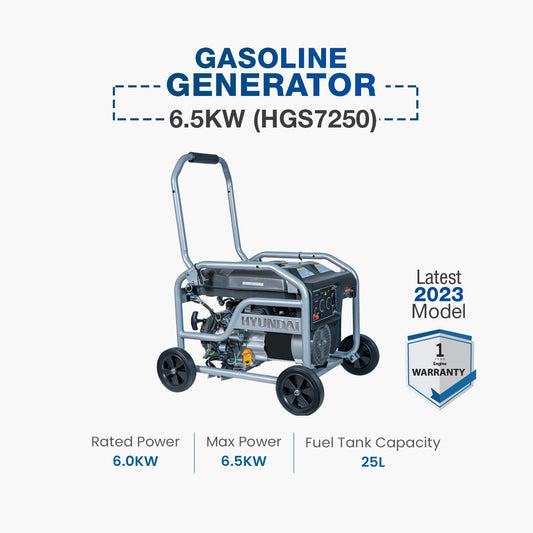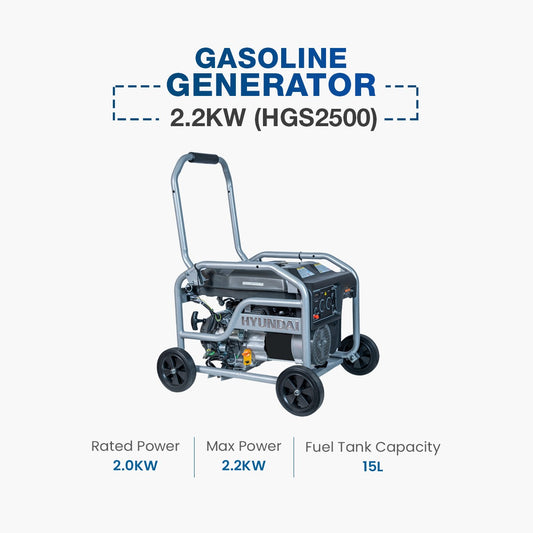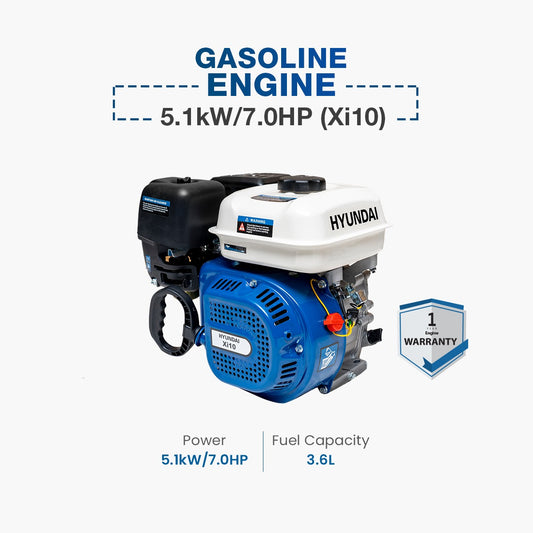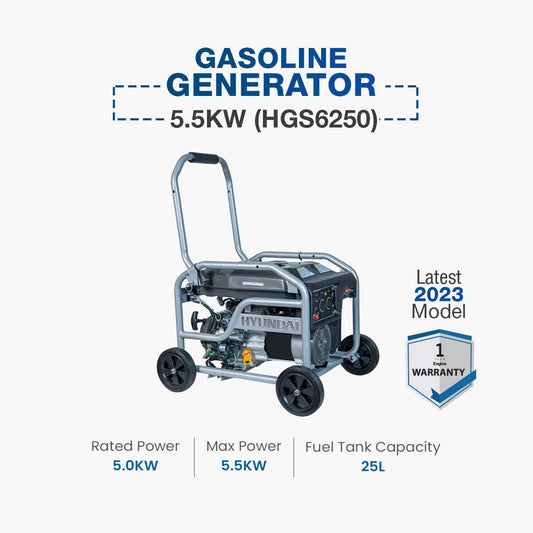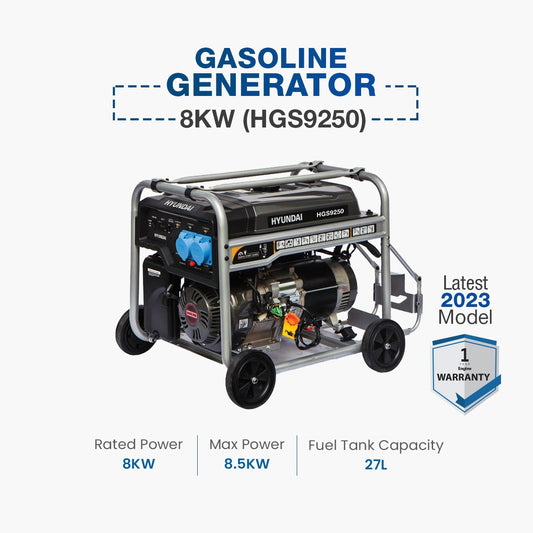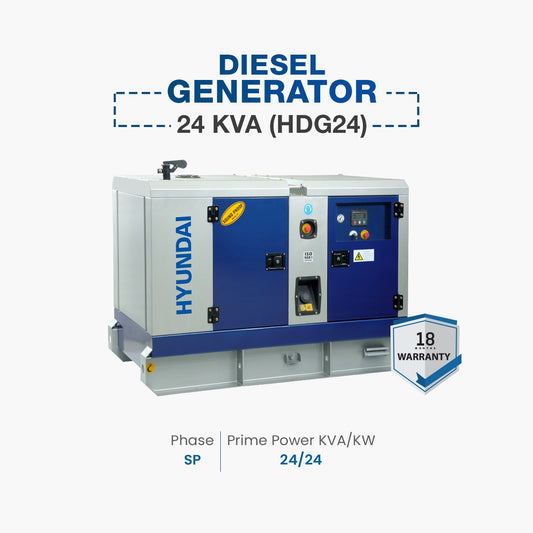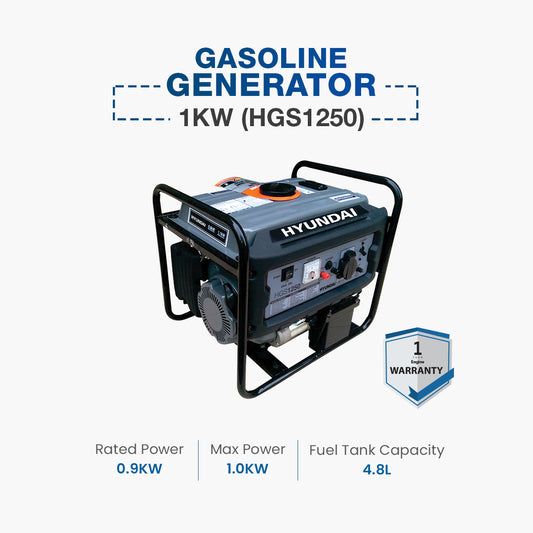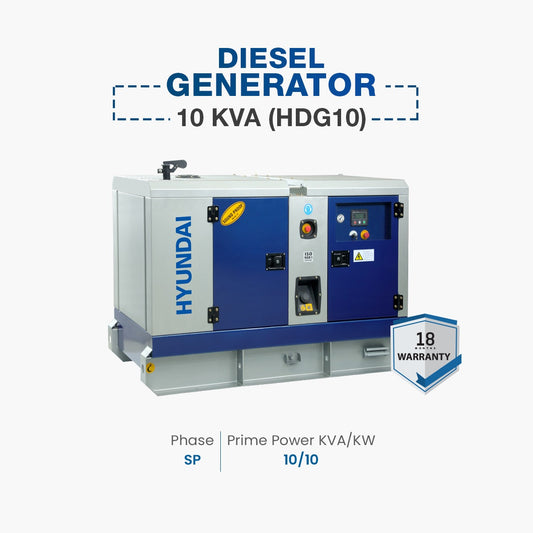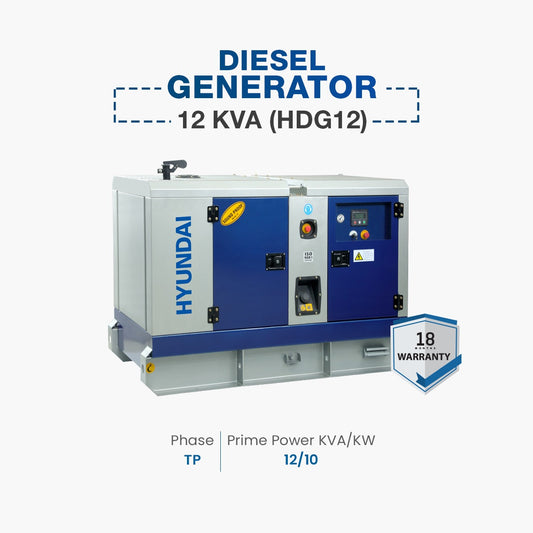-
Hyundai Gasoline Generator 3 KW (HGS3500)Rated Frequency 50Hz Rated Voltage 220V Rated Power 2.7KW Max. Power 3.0KW DC Output 12V/8.3A Fuel Tank Capacity 15L Noise (7m) 70dB Dimension (LxWxH) 630×500×495(mm) Weight 50kg Run Time 10Hrs
- Rs 150,000
- Rs 150,000
- Unit price
- per
-
Hyundai Gasoline Generator 6.5 KW (HGS 7250)Rated Frequency 50Hz Rated Voltage 220V Rated Power 6kW Max. Power 6.5kW DC Output 12V/8.3A Fuel Tank Capacity 25L Noise (7m) 74dB Dimension (LxWxH) 730*575*575(mm) Weight 94kg Run Time 10Hrs
- Rs 350,000
- Rs 350,000
- Unit price
- per
-
Hyundai Gasoline Generator 2.2 KW (HGS2500)Rated Frequency 50Hz Rated Voltage 220V Rated Power 2.0KW Max. Power 2.2KW DC Output 12V, 8.3A Fuel Tank Capacity 15L Noise (7m) 70dB Dimension (LxWxH) 630×500×495(mm) Weight 45kg Run Time 10Hrs
- Rs 135,400
- Rs 135,400
- Unit price
- per
-
Hyundai Gasoline Engine 5.1KW (Xi-10)Dimension 390 x 320 x 345 mm Dry Weight 16 kg Engine Type 4 Stroke, OHV Single Cylinder Displacement 208cc Compression Ratio 8.5.1 Bore x Stroke 70x54mm Maximum Output Power (7.0HP)5.1KW Maximum Torque 14.0N.m Cooling System Forced Air cooled Ignition System Transistorized Magneto ignition...
- Rs 25,520
- Rs 25,520
- Unit price
- per
-
Hyundai Gasoline Generator 5.5 KW (HGS6250)Rated Frequency 50Hz Rated Voltage 220V Rated Power 5KW Max. Power 5.5KW DC Output 12V/8.3A Fuel Tank Capacity 25L Noise (7m) 74dB Dimension (LxWxH) 730*575*575(mm) Weight 90kg Run Time 10Hrs
- Rs 300,000
- Rs 300,000
- Unit price
- per
-
Hyundai Gasoline Generator 8 KW (HGS9250)Rated Frequency 50Hz Rated Voltage 220V Rated Power 7.8KW Max. Power 8.0KW DC Output 12V, 8.3A Fuel Tank Capacity 25L Noise (7m) 74dB Weight 100kg Run Time 6.5Hrs
- Rs 390,000
- Rs 390,000
- Unit price
- per
-
Hyundai Diesel Generator 24 KVA (HDG24)Prime Power 24-KVA - 24-KW Standby Power 26.4-KVA - 26.4-KW Configuration 200-230 V, 1Ph, 50 Hz, 1500 RPM at 1 PF Consumption @ 100% load 6.1 Ltrs Consumption @ 75% load 4.7 Ltrs Consumption @ 50% load 3.3 Ltrs Particulars Sound Proof Canopy Length...
- Rs 0
- Rs 0
- Unit price
- per
-
Hyundai Gasoline Generator 1KW (HGS1250)Rated Frequency 50Hz Rated Voltage 220V Rated Power 0.9KW Max. Power 1.0KW DC Output 12V/8.3A Fuel Tank Capacity 4L Noise (7m) 64dB Dimension (LxWxH) 460X360X420(mm) Weight 27kg Run Time 11Hrs
- Rs 1
- Rs 1
- Unit price
- per
-
Hyundai Diesel Generator 10 KVA (HDG10)ISO 9001 Certified Manufacturing By OEM Warranty: 18 Months or 1000 hours. Low Fuel Shutdown Safety 24/7 After Sales Support 4 Cycle, Water Cooled, Natural / Turbocharged Direct Injection Mechanical / Electronic Governor System 12 Volt Self-Starter and Charger Alternator Economical & Easy avalibility...
- Rs 0
- Rs 0
- Unit price
- per
-
Hyundai Diesel Generator 12 KVA (HDG12)Prime Power 12-KVA - 10-KW Standby Power 13.2-KVA - 10.56-KW Configuration 415 V, 1Ph, 50 Hz, 1500 RPM at 0.8 PF Consumption @ 100% load 3 Ltrs Consumption @ 75% load 2.8 Ltrs Consumption @ 50% load 2 Ltrs Particulars Sound Proof Canopy Length...
- Rs 0
- Rs 0
- Unit price
- per
SUBSCRIBE TO OUR NEWSLETTER
Get the latest updates on new products and upcoming sales
